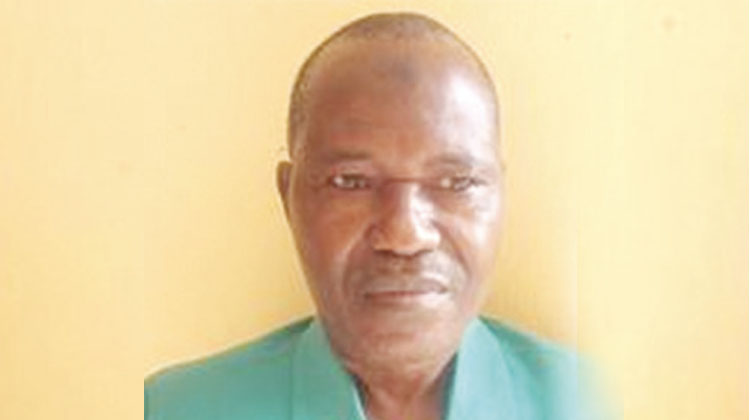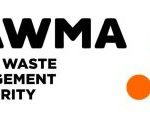
The concern of the government of President Bola Tinubu now should be how to grow the Nigerian economy; how to improve domestic production or output which will result in reducing the unemployment rate, increasing personal income and government revenue through taxes. It should also reduce dependence on imports, thus saving the current economic haemorrhage through avoidable capital outflow. The two major sectors of focus can be agriculture and industries. The leading subsectors within these sectors are the food/crop sub-sector for agriculture and the petroleum sub-sector in industry. The primary hurdles to cross are inflation, high cost of production, debt overhang and weakened exchange rate. The secondary hurdles include insecurity, sincerity of production actors and the overarching efforts of the mafia group.
Unfortunately, these hurdles have nothing to do with Tobi Amusan, the hurdle Queen; rather it has to do with Tinubu, the political hurdle finisher. We can recall the hurdles before the All Progressives Congress primaries that generated Emilokan hypothesis and the cash crunch and fuel shortage before the elections, all of which he crossed with some political dexterity. But the hurdles in governance are multidimensional. They cut across local economic, political and social spheres and move into international relations.
In looking for Nigerians to serve as ministers, the President would have seen that Lagos State is not Nigeria. He is yet to finally cross that hurdle, even after the two months constitutional requirement. There are myriad people and institutions to deal with at the national level than a state. There are internal and external socio-economic and political shocks and riddles to solve and hurdles to climb. There are people who were involved in the first (emilokan) hurdle, who joined in mounting the second hurdle and have already joined in creating the third set of hurdles. Prayers will work only if efforts are doubled and transparent with the resilience not to give up. And, that is why the ministers, when finally inaugurated, must undergo some training in work ethics, transparency, accountability and resilience from those who have successfully performed the same tasks at the national level, irrespective of position held at the state or local government level. The President will need to have layers of successors such that if a minister does not perform within a given time, he or she can be substituted. Nigerians cannot afford another wasted four years. Let us return to the subject matter of the day.
The high cost of production is itself derived from inflation because it results from an increase in the cost of labour or wage rate, raw materials and other inputs, particularly fuel and electricity. Price stability is one of the major goals of macroeconomics which every country must achieve. The monetary policy framework in most countries in the world today, including Nigeria, is inflation targeting. The desirability to have a low inflation rate cannot be overestimated. With a low inflation rate, the cost of living will be low, or high standard of living will be achieved. The cost of production will be low, resulting in low prices of commodities and affordability of most commodities by the citizens. The affordability will result in higher consumption which directly promotes higher levels of production or outputs requiring higher employment of human and non-human inputs and consequently growth in personal and national income.
When inflation rate climbed from three per cent to seven per cent and nine per cent in England recently, there were hues and cries. The citizens were already losing interest in their government. That is what inflation does. It is one of the variables that depress economies because it makes consumption to fall and production also falls in tandem because producers do not produce for keeps but to sell and make money. So, if there is a fall in consumption, production stops or falls. The consequences of a fall in production are rise in unemployment, fall in income to households and businesses, and a fall in tax revenue to the government. Countries, therefore, make policies to keep inflation down.
Nigeria’s inflation rate has been in double digits for the last five years. The institution that is supposed to keep it low has been fueling the rise in prices through policy mistakes. That is the Central Bank of Nigeria. The bank recognises the fact that there is too much money in the economy and this could cause inflation. Instead of finding out why Nigerians prefer to hold money to other financial assets and tackle such, the CBN wrongly thinks it has to increase interest rates to attract people to save. It has done so for many years without success.
Does interest rate significantly affect savings in Nigeria? What really is the source of large sums of cash in Nigeria? Why do Nigerians prefer to hold cash despite other means of payment? These are some of the questions the CBN should ask its research department to answer. When a patient tells a doctor his/her feelings, the latter can hazard a guess correctly but would still tell the patient to visit the laboratory for some tests. The doctor then prescribes medicine based on the result. The research department is the laboratory of the CBN and it should use the output of such laboratory.
I can say with a high level of conviction that the CBN itself promotes inflation that it is supposed to control by excessive lending of funds to the government to finance its budget; by raising the monetary policy rates and invariably lending rates in the banking system which fuels high cost of production, and recently by the failure of the twin policies of cashless economy and currency change which made the public lose interest in keeping money in banks. Both the government and CBN need to find solutions to the problem of inflation. The government should borrow less from the CBN by cutting down and prioritising its spending, while the CBN should reduce the monetary policy rates among other measures.
The servicing and repayment of the external debts have kept the external reserves very low. As we earn foreign exchange with the right hand, we transfer it to offset our debts with the left. The resultant effects are the balance of payment deficit, low external reserves, and weak naira against foreign currencies. Apart from that, we continue to import refined fuel, raw materials and foodstuff. We had thought the Dangote refinery would be able to start supplying fuel from July which ends today, as promised but everything is silent about production for now.
I read in a newspaper that the supply will not come until sometime in 2025! I am yet to believe the news because it implies that the commissioning that was done and witnessed globally in May 2023 was a scam. The Dangote Group is a multinational company and is too big to engage in such a scam. Be that as it may, the Nigerian government must start to have its refinery. It can be sole ownership or a joint venture. The private sector cannot be relied upon to give us refineries and the existing ones, if truly they are not producing, should be sold off. It may take some 18 months to get a refinery but it’s worth having, at least one that will not require turn-a-round in the next ten years. The government refinery will complement private efforts or vice versa.
It is surprising that Nigeria imports food and the value is significant in our import bills. There is a need for a temporary ban on such items. If any producer is aggrieved, it should relocate here to produce. But who will want to produce in an economy with weak currency where huge profits will be reduced to a small amount when being converted to foreign currency at repatriation? That is one of the major dilemma Nigeria faces with attracting foreign investments.
Our products are not competitive in the international markets because of the high cost of production and the economy is not attractive to foreign investments due to weakened currency. What is to be done? Suggestions have been made with respect to reducing inflation, and for the weakened currency, we have to import less and only items that are essential without local alternatives. We get a moratorium on existing loans which will reduce the amount we spend on debt servicing and repayment, pushing up the reserve and part of the package to strengthen the value of the naira and making some money available for procuring implements for enhancing domestic production.
The secondary hurdles, which are insecurity, sincerity of production actors and the overarching efforts of the mafia group, are all related and in the purview of socio-political sphere. They will be the subject of discussion in future endeavours.











